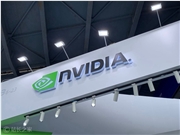Professor Geoffrey Hinton, known as the "godfather of artificial intelligence," has issued a warning that AI could lead to human extinction within the next decade. The computer scientist, who regrets his role in creating this technology, compares the rapid development of AI to the Industrial Revolution, but warns that this time, machines may "control everything."
This 77-year-old British computer scientist, awarded the Nobel Prize in Physics for his pioneering work in AI, is calling for governments to enhance regulation of AI companies. Professor Hinton previously predicted a 10% chance that AI could lead to human extinction within 30 years.
In an interview with BBC Radio 4's Today program, when asked if anything had changed in his analysis, he stated, "Actually, no. I believe the timeframe is 10 to 20 years, or even shorter. We have never dealt with anything more intelligent than ourselves. Do you know how many examples there are of smarter things being controlled by less intelligent ones? There are very few."

In the 1980s, Professor Hinton invented a method for autonomously searching data attributes and recognizing specific elements in images, laying the groundwork for modern AI. He mentioned that the speed of technological development is "much faster than he expected," and it could reduce humans to the role of "three-year-olds," while AI becomes the "adults."
He continued, "I think it's like the Industrial Revolution. During the Industrial Revolution, human power [became less important] because machines became stronger—if you wanted to dig a trench, you would use a machine. What we have now is replacing human intelligence. The intelligence of the average human will no longer be at the forefront; machines will replace humans."
Professor Hinton predicts that AI will bring about monumental changes in the lives of ordinary people, much like the Industrial Revolution did, as recorded by Charles Dickens. He stated that how life will be with this technology in the future will "largely depend on how our political systems utilize this technology."
He added, "What worries me is that even though it will lead to tremendous increases in productivity, which should benefit society, if all the benefits flow to the wealthy while many lose their jobs and become poorer, that could ultimately be very detrimental to society."
"These things are smarter than us. So during the Industrial Revolution, machines could never replace humans simply because they were more powerful. We still controlled everything because we had intelligence. Now, these things have the potential to control everything, so that’s a significant difference."
He expressed his "hope" that other "very knowledgeable" experts in the field are correct in feeling optimistic about the future of this technology.
However, Professor Hinton added, "I worry that the invisible hand will not guarantee our safety. Therefore, simply leaving it to the profit motives of large companies is not enough to ensure they develop it safely."
"The only thing that can compel those large companies to conduct more safety research is government regulation. So I firmly believe that the government needs to force large companies to engage in extensive safety research."
Professor Hinton previously stated that he feels somewhat regretful about introducing this technology to the world. He said, "There are two types of regret. One is the guilt you feel for doing something you know you shouldn't have done, and the other is the regret of doing the same thing again in the same situation, but ultimately it may turn out badly."
"I have the second type of regret. In the same situation, I would do it again, but I worry that the overall consequence of this is that systems smarter than us will eventually control everything. We have never experienced what it is like to deal with something more intelligent than ourselves."









